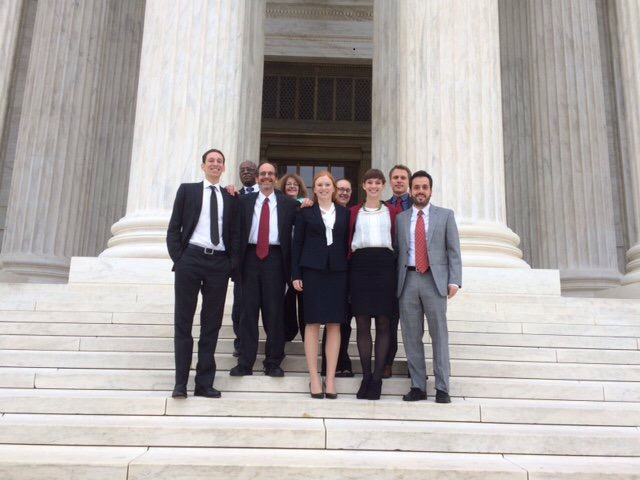Civil Rights Victory for Supreme Court Litigation Clinic Client — and for Future Title VII Constructive Discharge Claimants

On May 23, 2016, the U.S. Supreme Court handed civil rights claimants a victory in Green v. Brennan, a case handled by the Supreme Court Litigation Clinic. The case involved the country’s principal employment anti-discrimination law, Title VII of the 1964 Civil Rights Act. Our client, a long-time postmaster with the U.S. Postal Service, claims that the Service retaliated against him after he complained that he was passed over for a promotion because he is African American. The retaliation got so severe – including false threats of criminal prosecution – that our client felt that he had no choice but to resign from the Postal Service. He then claimed in federal court that this “constructive discharge” arising from the retaliation violated Title VII. But the U.S. court of appeals in Denver did not hear our client’s constructive discharge claim on its merits. Instead, the court threw out the case on statute of limitations grounds. The court said that the 45-day time limit for presenting our client’s claim ran not from when Mr. Green retired under severe pressure, but from the last retaliatory act that allegedly forced him to retire.
The Supreme Court disagreed with the court of appeals in a 7-to-1 decision authored by Justice Sonia Sotomayor. Justice Sotomayor’s opinion, which adopted many of the positions advanced in the clinic’s briefs, explained that a constructive discharge claim includes two essential elements: bad acts by the employer and the employee’s subsequent forced resignation. The statute of limitations, Justice Sotomayor held, should not begin to run until the employee’s claim is “complete,” that is, until the employee resigns. The court noted that this result was fairer to Title VII claimants who might not know that they have to file a claim while they are still on the job. Moreover, employees might not want to sue while still on the job because that could further undermine the employer-employee relationship.
The clinic first took on this case in fall 2014, thanks to the referral and co-counseling of private attorneys who had represented Mr. Green in the lower courts — John Mosby, Elisa Moran and Marilyn Cain Gordon. Clinic students Andrew Vaden (JD ’15), Alec Schierenbeck (JD ’15), Morgan Weiland (JD ’15), and Michael Skocpol (JD ’16) wrote a great cert petition, showing that there was a conflict in the lower courts on the timeliness issue. The Court agreed and granted review. Then, clinic students Sam Byker (JD ’16), Alex Twinem (JD ’16), and Danny Kane (JD ’16), wrote our full-blown merits brief in spring 2015. Finally, a new clinic team composed of Greg Elinson (JD ’16), Gina Elliott (JD ’17), and Rylee Sommers-Flanagan (JD ’16), joined by case veteran Michael Skocpol (JD ’16), drafted our reply brief and helped with oral argument preparation.
For more background and analysis, and to read all of the briefs in the case, see SCOTUSblog here. ◊
